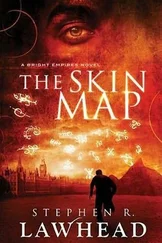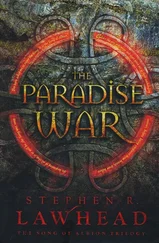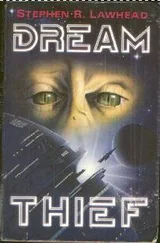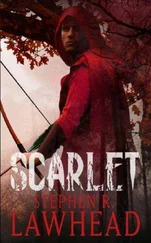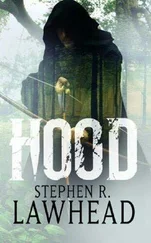Stephen Lawhead - Taliesin
Здесь есть возможность читать онлайн «Stephen Lawhead - Taliesin» весь текст электронной книги совершенно бесплатно (целиком полную версию без сокращений). В некоторых случаях можно слушать аудио, скачать через торрент в формате fb2 и присутствует краткое содержание. Жанр: Фэнтези, на английском языке. Описание произведения, (предисловие) а так же отзывы посетителей доступны на портале библиотеки ЛибКат.
- Название:Taliesin
- Автор:
- Жанр:
- Год:неизвестен
- ISBN:нет данных
- Рейтинг книги:4 / 5. Голосов: 1
-
Избранное:Добавить в избранное
- Отзывы:
-
Ваша оценка:
- 80
- 1
- 2
- 3
- 4
- 5
Taliesin: краткое содержание, описание и аннотация
Предлагаем к чтению аннотацию, описание, краткое содержание или предисловие (зависит от того, что написал сам автор книги «Taliesin»). Если вы не нашли необходимую информацию о книге — напишите в комментариях, мы постараемся отыскать её.
Taliesin — читать онлайн бесплатно полную книгу (весь текст) целиком
Ниже представлен текст книги, разбитый по страницам. Система сохранения места последней прочитанной страницы, позволяет с удобством читать онлайн бесплатно книгу «Taliesin», без необходимости каждый раз заново искать на чём Вы остановились. Поставьте закладку, и сможете в любой момент перейти на страницу, на которой закончили чтение.
Интервал:
Закладка:
When the sun began lowering in the west, Gwyddno, seeing that all the guests had arrived, climbed up on the pyramid of stacked casks and blew a long blast on his hunting horn. The people gathered around and he shouted, “Let the wedding celebration of my son begin!”
And so it did. Elphin emerged from his father’s house wearing a great silver tore around his neck, a bright yellow tunic, and green trousers bound to the knee with strips of blue silk; an emerald-studded dagger was tucked into his wide leather Belt, and a new cloak of orange-and-scarlet plaid was fastened at his shoulder with a great gold brooch inlaid with garnets. As he made his way to the feast site, which was now crowded with people, a small space was cleared and Elphin came to stand in the center of the ring.
Medhir and Eithne came next and stepped to either side of the doorway to hold aside the pelts covering the entrance. Rhonwyn emerged, straightened, and walked slowly to the circle. She was dressed in a long gown of spring-green linen, embroidered in gold at the neck and hem; a necklace of braided gold lay upon her breast, golden armbands in the shape of serpents encircled her bare arms, and gold bracelets jkigled on her wrists; her cloak was of radianTpurple silk with tiny silver Bells sewn to the tassels along its edge; around her waist she wore a peari-encrusted girdle, and on her feet were slippers of gilded leather. Her red-gold hair fell in russet waves down her back, beneath two long, intertwined braids into which white campion blossoms had been plaited and secured with jeweled pins.
Elphin gazed upon her as she walked slowly forward and knew that he had never seen a woman so fair. And he was not the only one with thoughts like these: most gathered there Believed her to be the loveliest woman yet seen in the kingdom, and said so, proclaiming this loudly to their neighbors.
When Rhonwyn had joined Elphin in the circle, Hafgan, with oaken staff in hand, came to stand before them. He was followed by his two new filidh, one of whom carried an earthenware bowl and the other a pitcher of wine. He smiled warmly at the couple and said, “This is a most auspicious time for a marriage. Look!” He pointed with his staff towards the first evening star already shining in the clean, cloudless sky. “The goddess’ own star looks down and blesses you with its light.”
Then he took the bowl, filled it from the pitcher, and raised it, offering it to the setting sun and to the rising moon, repeating a special wedding invocation to each in turn. He passed the bowl to Elphin saying, “This represents life; drink deeply of it.”
Elphin took the bowl and drank, emptying it in three great swallows. Hafgan refilled the bowl from the pitcher and gave it to Rhonwyn, repeating his injunction. She drained the bowl and returned it to the druid. The bowl was filled a third time and placed in the wedding couple’s hands. “This bowl represents your new life commingled; drink deeply of it together. “
Elphin and Rhonwyn lifted the bowl and shared it between them until it was gone. While they were drinking, Hafgan stooped and, taking hold of the ends of their cloaks, tied the two ends together.
“Smash the bowl!” instructed Hafgan when they had finished, and they threw the bowl to the ground where it broke into three large pieces. The druid studied the shards for a moment, then raised his staff and proclaimed, “I see here a long and fruitful marriage! A union richly blessed with every good fortune!”
“Long live Elphin and Rhonwyn!” returned the guests. “May their house prosper!”
An avenue was opened in the circle, and Elphin and his bride were conducted to the long timber table where they were seated on a couch of rushes covered with dappled fawn skins, and the feast began. Food was served up in wooden trenchers, the choicest morsels going to the wedding pair. A huge silver chalice was filled with wine and placed before them. Everyone found a place to sit: honored guests were seated at the low tables to the right and left of die wedding pair according to rank, and all the rest claimed places on skins and rugs scattered on the ground.
They talked and laughed as they ate, voices loud in rejoicing. And when the delights of the table had been sampled sufficiently, the people began to clamor for entertainment.
“Hafgan!” called Gwyddno merrily. “A song! Sing us a song, bard!”
“I will sing,” answered the druid. “But I beg the honor of singing last. Allow my filidh to begin in my stead.”
“Very well, save your voice,” answered Gwyddno. “But we will require your best before this feast is through.”
The apprentice bards produced their harps and began to sing. They sang the old songs of conquest and loss, of heroes and their mighty deeds of valor, of the love of their women, of beauty bright and tragic death. As they sang, the moon rose with her train of stars, and evening deepened to night.
Elphin gazed at his wife and loved her. Rhonwyn returned his gaze and leaned close, nestling her head against his chest. And all who saw them remarked at the great change in Elphin, for indeed he seemed a new-made man.
When the filidh finished their songs, a cry went up for Hafgan. “Give us a song!” cried some. “A story!” cried others.
Taking up his harp, he came to stand before the table. “What do you wish to hear, lord?”
He addressed Elphin, and no one failed to grasp the significance, although Elphin deferred, saying, “It is my father’s place to choose. I am certain his choice will please.”
“A story, then,” said Gwyddno. “A tale of bravery and magic.”
Hafgan paused for a moment, plucking a few idle notes on the harp, men announced, “Hear then, if you will, the story of Pwyll, Prince of Annwfn.”
“Excellent!” the listeners cried. Cups and bowls were refilled as the wedding guests hunkered down to hear the tale.
“In the days when the dew of creation was still fresh on the earth, Pwyll was lord over seven cantrefs of Dyfed, and seven of Gwynedd, and seven of Lloegr as well. In Caer Narberth, his principal stronghold, he awakened one morning and looked out upon the wild hills abounding with game of all kinds and it came into his head to assemble his men and go hunting. And this is the way of it…”
Hafgan’s voice rang out strong and clear, and the story unfolded in its familiar pattern to the delight of the listeners. At certain places in the tale, the druid would strum the harp and sing the passage, as prescribed by tradition. It was a well-known story, one relished by all who heard it, for Hafgan told it well, acting out the important parts, making his voice accommodate the speech of the various characters. This is the tale he told:
“Now the part of his realm that Pwyll wished to hunt was Glyn Cuch and he set out at once with a great company of men and they rode until dusk, arriving just as the sun was slipping into the western sea, beginning its journey through the Underworld.”
They made camp and slept, and at dawn the next morning they rose and entered the woods of Glyn Cuch, where they loosed the hounds. Pwyll sounded his horn, mustered the hunt and, being the fastest rider, set off behind his dogs.
“He followed the chase and in no time was lost to his companions, far outdistancing them in the thick-tangled woods. As he was listening to the cry of his hunting-pack, he heard the cry of another pack, far different from his own, coming toward him, their cry a chill on the wind. He rode to a clearing before him and entered a wide and level field where he saw his dogs cowering at the edge of the clearing while the other pack raced after a magnificent stag. And lo, while he watched, the strange dogs overtook the stag and bore it to the ground.
“He rode forward and saw the color of the hounds, and of all the hunting dogs in all the world he had never before seen any like these: the hair of their coats was a brilliant, shining white, and that of their ears red. And the redness of the ears gleamed as bright as the whiteness of their bodies glittered. And Pwyll rode to the shining dogs and scattered them, choosing to set his own hounds upon the killed stag.
Читать дальшеИнтервал:
Закладка:
Похожие книги на «Taliesin»
Представляем Вашему вниманию похожие книги на «Taliesin» списком для выбора. Мы отобрали схожую по названию и смыслу литературу в надежде предоставить читателям больше вариантов отыскать новые, интересные, ещё непрочитанные произведения.
Обсуждение, отзывы о книге «Taliesin» и просто собственные мнения читателей. Оставьте ваши комментарии, напишите, что Вы думаете о произведении, его смысле или главных героях. Укажите что конкретно понравилось, а что нет, и почему Вы так считаете.


